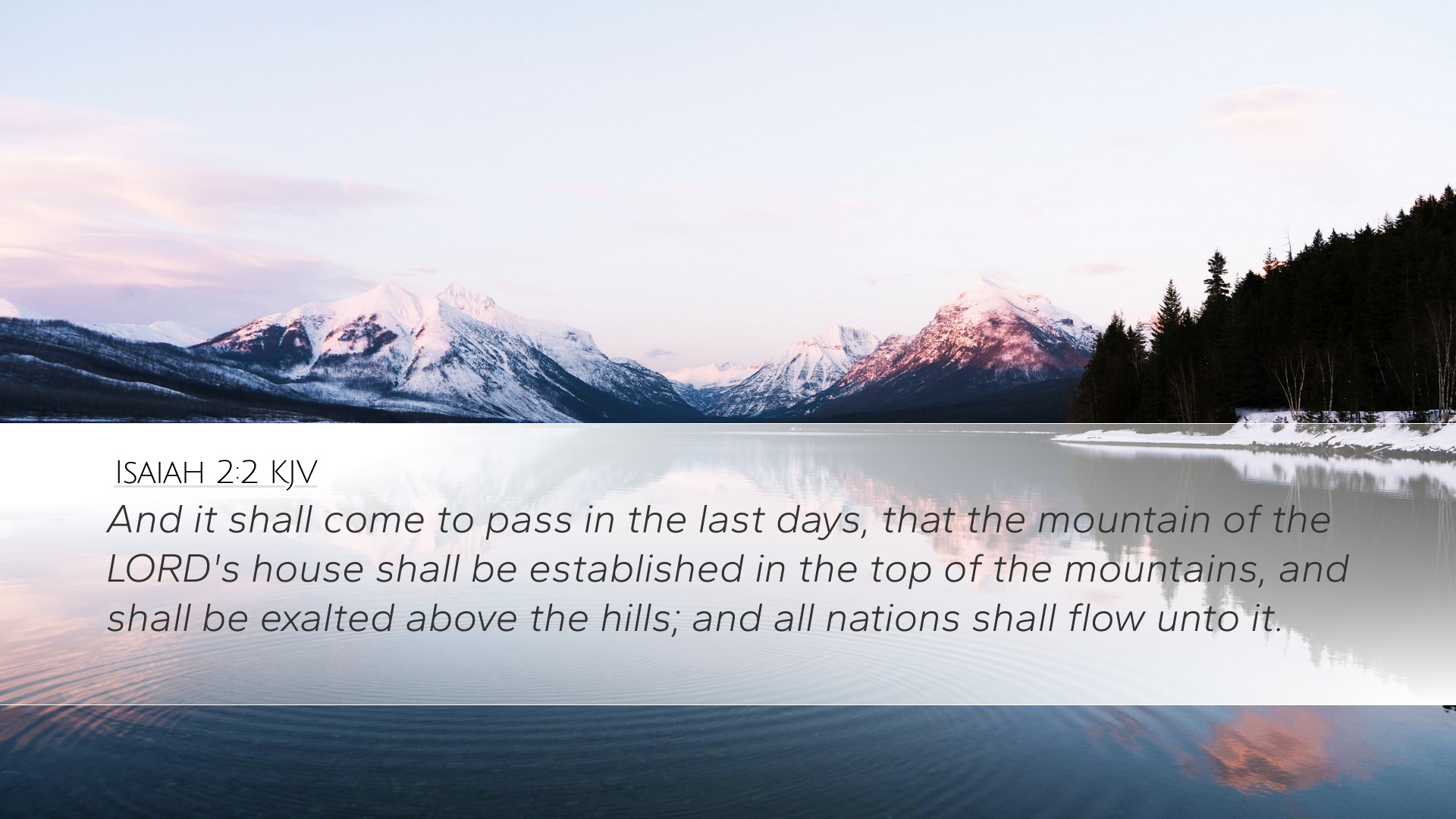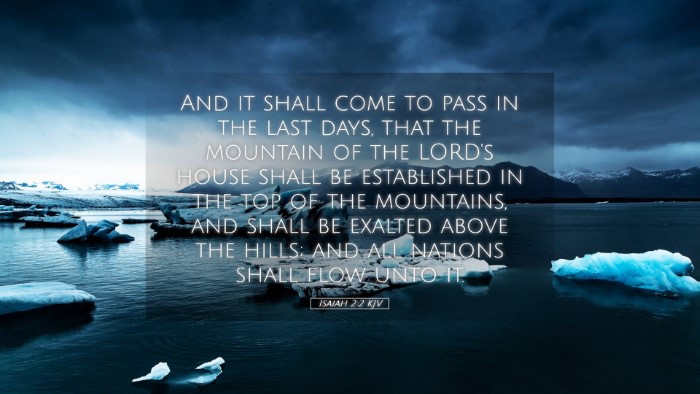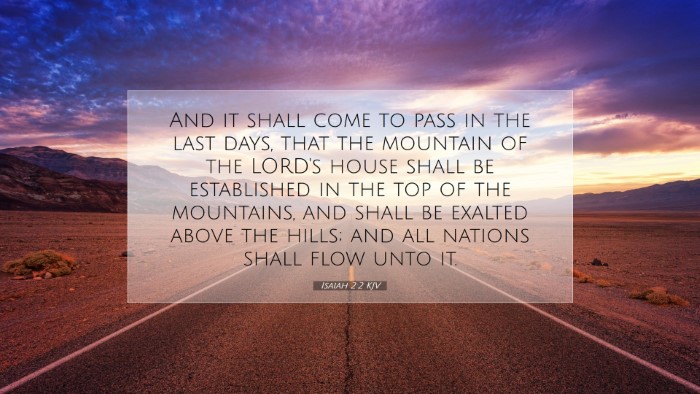Isaiah 2:2 - Commentary Summary
Isaiah 2:2 states: "And it shall come to pass in the last days, that the mountain of the Lord's house shall be established in the top of the mountains, and shall be exalted above the hills; and all nations shall flow unto it." This verse is a prophetic vision of the establishment of God's kingdom, emphasizing its universal appeal and spiritual significance.
Contextual Background
The Book of Isaiah is set against a backdrop of political turmoil and spiritual decline in Israel. Chapters 1 through 5 introduce themes of judgment intertwined with hope. Isaiah speaks to both the immediate audience of his time and the future hopes of Judah and Israel, especially concerning the messianic age.
Interpretation and Insights
This verse marks a turning point in Isaiah's prophecies, depicting a time when God's sovereignty will be acknowledged and revered by all nations.
Matthew Henry's Commentary
Matthew Henry emphasizes that the "mountain of the Lord's house" refers to the temple in Jerusalem, representing the presence of God among His people. He notes:
- Elevation of God's Kingdom: The mountains symbolize strength and stability. The exaltation of God's house above all other mountains signifies His supreme authority over all nations.
- Universal Draw: Henry interprets "all nations shall flow unto it" as a prophetic vision where people from every tribe and tongue will seek God. This alludes to the messianic fulfillment in Christ, where His gospel will be spread to the ends of the earth.
Albert Barnes' Notes
Albert Barnes provides a detailed examination of the imagery used in this verse. His insights include:
- Last Days Context: Barnes explains that "the last days" refers to the period of the Messiah's reign. It suggests a future time when God's plan for redemption culminates in the universal acknowledgment of His lordship.
- The Symbolism of Mountains: He notes that mountains are often used in Scripture to symbolize kingdoms or nations. The emphatic declaration of God's house being established "in the top of the mountains" suggests the ultimate triumph of God over human authority.
Adam Clarke’s Commentary
Adam Clarke provides a rich exploration of the implications of this verse, particularly in relation to the prophetic vision. His commentary includes:
- Covenantal Promises: Clarke emphasizes that this verse reflects the fulfillment of God's covenant with Israel, heralding a time when all nations will recognize Israel's God as the true God.
- Spiritual Flow: He describes the metaphor of "flowing" as indicative of a natural and organic movement towards God. This suggests an acknowledgment of God's sovereignty that transcends geographical and cultural boundaries.
Theological Implications
The implications of Isaiah 2:2 are profound for understanding the nature of God's kingdom. This verse invites pastors, theologians, and students to reflect upon:
- The Kingdom of God: The establishment of God's kingdom has both present and future dimensions, emphasizing the active role of believers in advancing God's mission today.
- Mission and Evangelism: The envisioning of all nations flowing towards God's mountain serves as a call to the church to engage in mission work and evangelism, inviting people from every background to embrace the hope offered in Christ.
- Unity in Diversity: This prophetic image suggests unity among diverse nations under a common allegiance to God, highlighting the inclusive nature of His salvation.
Practical Applications
For pastors and church leaders, Isaiah 2:2 offers multiple avenues for application:
- Preaching and Teaching: Emphasize the universal call of the Gospel in sermons, motivating congregations to engage with communities beyond their own.
- Community Engagement: Foster relationships with diverse cultures and communities, emphasizing the shared human longing for God.
- Prayer for Nations: Encourage prayer initiatives focused on global missions, recognizing the importance of intercession for the nations.
Conclusion
Isaiah 2:2 is a powerful reminder of God's overarching plan for humanity through the establishment of His kingdom. It calls for a recognition of God's authority and the fulfillment of His promises through Christ. For pastors, students, and scholars alike, this verse serves as an essential text for exploring the implications of God's transformative power in the world.


